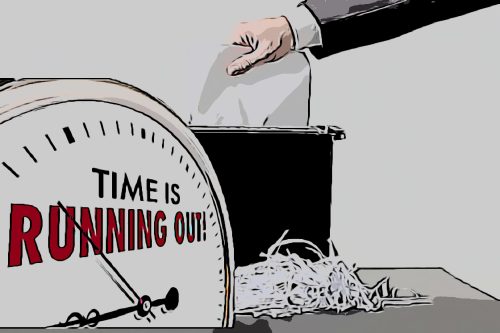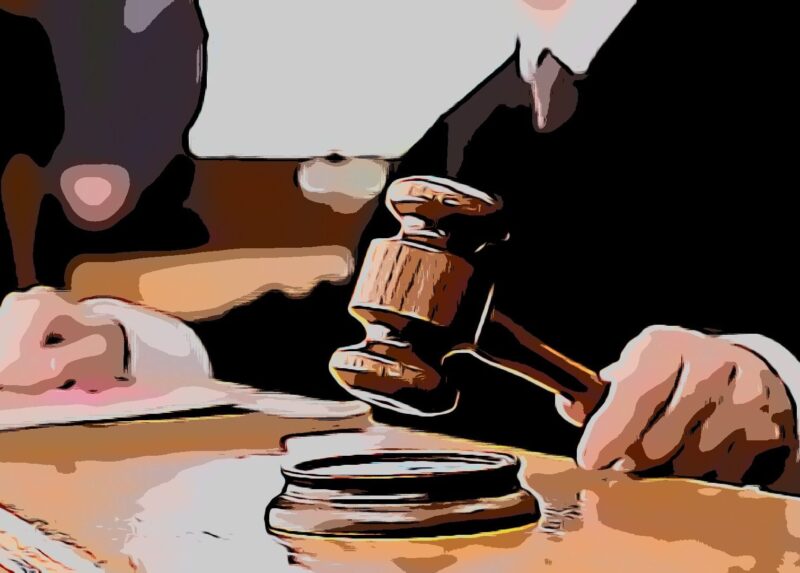There is a 22-month records retention requirement for all records pertaining to federal elections, such as the 2020 presidential election, and the 2022 midterm election. This requirement has not been met by all the counties. We are discovering more and more violations of the law every day.
Records requests are delayed by the county and state election records officers
During the course of our analysis of the 2020 election, we have been requesting records from the counties to collect data. It has ranged from chain of custody logs, purchase agreements, contracts, manuals, and election equipment reports, to name a few. We have also requested records from the Secretary of State’s office. It didn’t take long before it became apparent that there was a coordinated effort by the counties, likely directed by the OSOS, to slow down our progress. The first clue was repetitive responses to our questions, reassuring us that the process is secure, and that there is nothing to see. When we weren’t satisfied with the answers, we started asking for specifics.

This was done through submitting records requests, among other information sources. At this point, we started to gain an understanding of what side of transparency the different departments had chosen to stand on. Some counties were pleasant and were able to provide responsive records in a timely manner. Others were difficult, and in some cases impossible to work with. One tactic they put in place was to stall and drag their feet when responding to our requests for information. Many used the excuse of the governor’s emergency declaration and staffing shortages due to covid to hide behind and drag out the requests.
“Touch Base Meetings”

Turns out the county auditors are having regular meetings to discuss our election related records requests, and tracking which counties have received which requests, as well as who sent them. They discuss how to respond, sharing guidance on how to claim exemptions to the records and prevent their release.
It appears they are also consulting the Secretary of State on certain records. Sheryl Moss wrote something that they all shared amongst themselves as good guidance to use when responding to the PRR’s, and Les Bowen from the OSOS also appears to be instructing the counties on how to respond, while stating they should check with their county prosecutor. This statement is made to cover his back, but he is still offering instruction on how to handle the requests.
Response time
They are required to reply within 5 business days, but the records are never provided at that time. That correspondence will typically notify you of a date when they “reasonably expect” to have records to provide you. We have experienced some counties stating 30-45 days before they will send your requested records. Some have told us it would be 90-180 days. Once the date finally rolls around, some will then extend it another 15-30 days, or decide they don’t have any records which they can provide. We have had a request going on with the Secretary of State’s office for over 6 months. They provide a little bit every month and a half or so. Along with those records, they will provide another date for the next installment. Some counties would divide records into installments which made no sense. For example, some reports generated by the election management system, or the election equipment which could have been extracted together at the same time was split up into different installments and spread out over months. Some files had a “last edited” date of a month before they actually sent the records. Why were they sitting on them for that long?
Records retention
Federal law requires each state to retain records from federal elections for 22 months. The reason we believe the various county and state records are delayed is because they are hoping to run out the clock, destroy the records, and not allow any further inspection of what happened. We also know that not all records have been preserved. For more information on what we know about deleted election records, click HERE. What they didn’t see coming, however, is that 2020 is not the only concern. It’s simply the event that raised the question. It has united people across the country who are working together for the sake of ensuring the right to vote is not an illusion or a predetermined event.
The 2020 election was a learning experience. While investigating 2020, we have been able to narrow down which records we need to obtain, and how we can use them to secure our elections. We will also be prepared to take necessary steps to intervene through the courts or other applicable avenues if needed.
To the Elections Supervisors and other election department staff:
There is a possibility that the county elections offices are worried about us finding a small mistake made by a colleague, employee, vendor, etc. and blowing it out of proportion. For them we have this message:
Everyone makes mistakes. We aren’t looking for mistakes. We are looking for intentional and willful acts which are intended to have an effect on the election or its results. It is likely that some of the election workers don’t even know that something is wrong and feel they have done everything according to the procedure. They probably have in most cases. The problem, we believe, is not on the surface, but rather at a deeper level(s). If the county feels they have done everything with integrity and within the law, there is no reason they should hesitate to provide the information we are requesting. If there is something going on that they are not aware of or a participaing in, they would want to know if someone or something was taking advantage of them. We are all victims if our election results don’t match the will of the people.

We don’t want to find that anyone working with the county or for the county would actually knowingly and willingly alter the results of our elections or the course of history. That would be an illegal and evil attack on the freedom of the people. It is difficult to imagine someone willing to commit such an act.
We are simply looking for answers. Those who choose to stand in the way will raise suspicion by default. We are not targeting anyone. However, we will act accordingly in response to any opposition.




